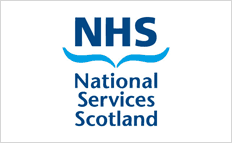Micronutrient Screen
A general screen of micronutrients may be of clinical value in the management of patients with potential nutritional deficiency such as patients with Crohn’s Disease and other malabsorptive conditions, patients on total parenteral nutrition, and individuals whose nutrition may be inadequate such as the elderly.
The constituent parts of a micronutrient screen are selenium, copper, zinc, and vitamins A, C, & E (also includes vitamins D and K in Scotland) in plasma; manganese and vitamin B1 in whole blood; and selenium and vitamins B2, and B6 in red cells.
Sample Requirements for Micronutrient Screen
| Samples |
If requesting from within NHS Greater Glasgow and Clyde: Use Trakcare 'Micronutrient set 2' (RHPN2). This requires 1 SST (yellow top), 1 EDTA (purple top) and 3 lithium heparin non-gel tubes (green top. Note that the green and yellow top gel tubes used for troponin are not suitable), but 2 of the 3 heparin tubes only need to be partially filled. Patient should be fasting and blood taken at least 8 hours post supplementation. If requesting from outwith NHS Greater Glasgow and Clyde but sending blood samples direct to Glasgow Royal Infirmary laboratory: Either send 2 lithium heparin non-gel tubes (5 mL* blood in each tube) or 1 lithium heparin non-gel (5 mL* blood) and 1 EDTA (5 mL* blood). Trace element free tubes containing anticoagulant e.g. heparin, EDTA are suitable for all STEMDRL tests and are the preferred sample type due to the low risk of trace element contamination. Trace element free tubes with no anticoagulant are only suitable for serum copper, zinc, selenium and vitamin D. Samples must arrive within 4 hours of collection in order for the full screen to be carried out (if samples arrive outwith 4 hours of collection, zinc and vitamin C results will not be available). Patient should be fasting and blood taken at least 8 hours post supplementation. If requesting from a laboratory outwith NHS Greater Glasgow and Clyde and samples will reach Glasgow within 72 hours of collection: One whole blood sample (at least 5 mL; lithium heparin (non-gel) or trace element free tube containing anticoagulant) and one aliquot of plasma/serum (at least 2 mL*) taken from a lithium heparin (non-gel) or a trace element free tube. If vitamin C is required a stabilised plasma sample is needed (see Precautions section below). Patient should be fasting and blood taken at least 8 hours post supplementation. If requesting from a laboratory outwith NHS Greater Glasgow and Clyde and samples will reach Glasgow outwith 72 hours of collection: One whole blood sample (at least 5 mL*; lithium heparin (non-gel) or trace element free tube containing anticoagulant), one aliquot of red cells from a lithium heparin (non-gel), EDTA or trace element free tube containing anticoagulant) and one aliquot of plasma/serum (at least 2 mL*) taken from a lithium heparin (non-gel) or trace element free tube. See Precautions section below for more details. If vitamin C is required a stabilised plasma sample is needed (see Precautions section below). |
|---|---|
| Container | See Samples section above and note SST and lithium heparin gel samples are unsuitable for STEMDRL tests. |
| Precautions |
If vitamin C is required a stabilised plasma sample is required (see details here).
Zinc leaks from red cells so plasma/serum should be separated as soon as possible (cut-off: 4 hours; or within 24 hours if refrigerated). |
| Minimum volume* | See Samples section above. |
| Reference ranges | See details in specific micronutrient pages. |
| Mean turnaround time | 4.5 days |
| Method |
Vitamins by HPLC with UV, fluorimetric, electrochemical or mass spectrometry detection (except vitamin D which is measured by immunoassay). Copper, zinc, selenium and manganese by inductively coupled plasma mass spectrometry. |
* Absolute minimum volume; this volume is insufficient to carry out repeat analysis if analysis fails.

